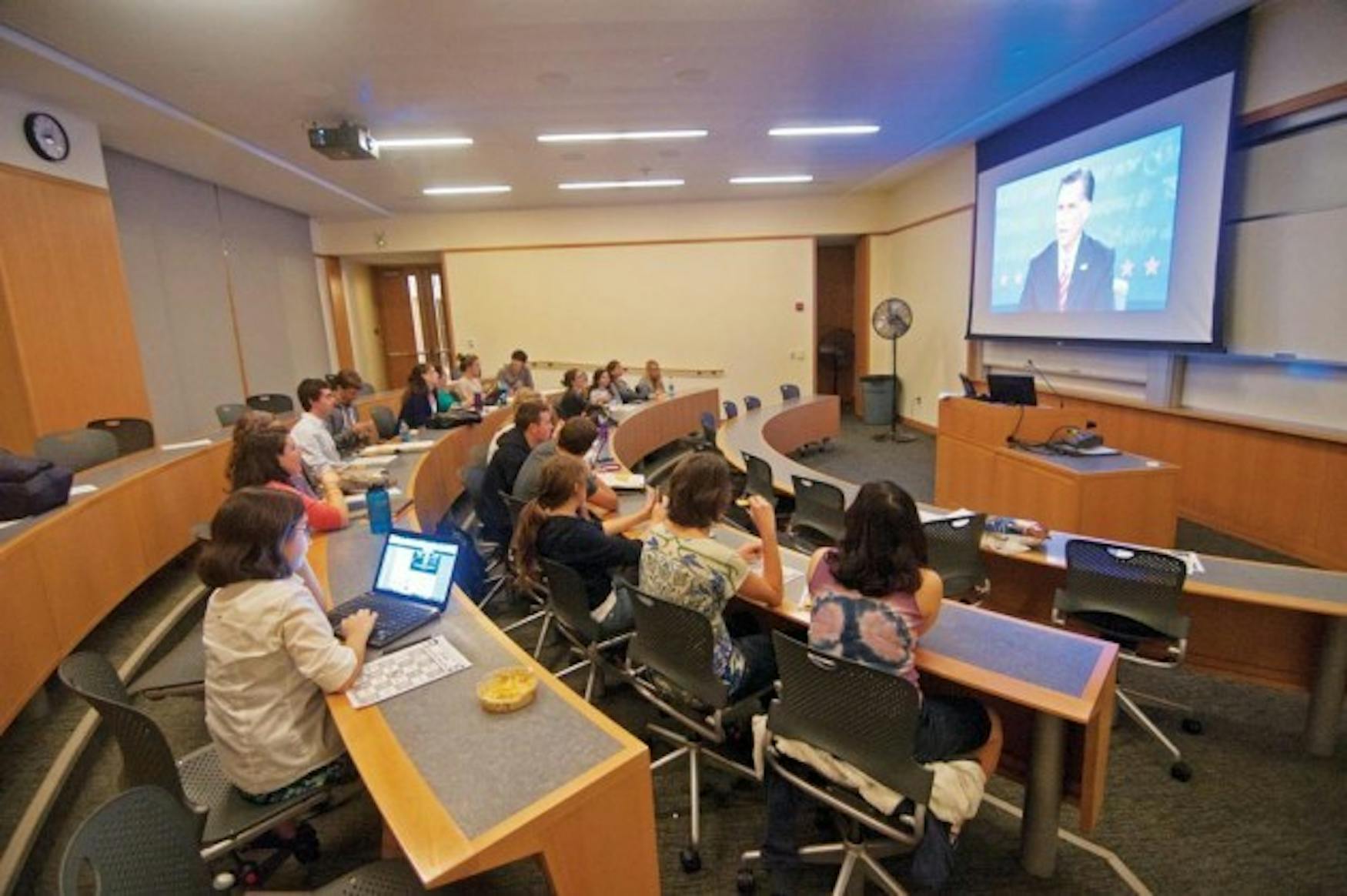Foreign policy comes to fore
Last night at 9 p.m., 15 days before election day, presidential candidates Gov. Mitt Romney, and President Barack Obama met in Boca Raton, Fla. for their final debate. The debate, which was moderated by long-time CBS news anchor Bob Schieffer, covered foreign policy, but also made temporary detours into domestic policy. The candidates' comments paid particular attention to Iran and Israel, and included a fiery repartee over China as well.
The discussion began with a question concerning Libya and the Middle East. Romney acknowledged the accomplishment of the assassination of Osama bin Laden, but stressed that the foremost goal for his administration would be to stop extremism all over the Middle East by showing a stronger presence and providing for democratically leaning opposition parties in countries such as Egypt and Syria.
Obama criticized Romney's foreign policy for being similar to that of the 1980s, stating that previously Romney said in a speech that Russia is the greatest geopolitical foe of the United States.
Many of the plans Obama detailed for the future focused on advancing the country's place in the world in terms of math and science education, as well as advancing technology, while Romney suggested that the last four years have made the United States weaker and that he would protect military spending.
Obama, however, countered: "We spend more on our military than the next 10 countries combined: China, Russia, France, the U.K., you name it, the next 10. What I did was work with our joint chiefs of staff to think about what are we going to need in the future to make sure that we are safe."
When the subject of how to handle Iran's nuclear program arose, Romney ardently called for a series of "crippling sanctions." Obama said that his main objective is to prevent Iran from attaining a nuclear weapon, but that he could not act without evidence.
With Obama referring to Israel as the United States's "true friend and greatest ally in the region," both candidates were in agreement regarding Israel.
Romney continued his firm criticism of Obama's supposed neglect of China's manipulation of currency. Obama responded by saying that the United States will need to continue to ensure that China is following the rules, but that they have been bringing cases against China's violations of trade rules. While both agreed that China is an important trade partner, Romney criticized China's blatant creation of trade imbalance.
"I will get America working again and see rising take-home pay again, and I'll do it with five simple steps," said Romney on one of many economic tangents. He then went on to outline his plans to create 12 million jobs.
One student felt uncomfortable with the degree to which the candidates strayed from the central theme. "They didn't talk about foreign policy issues today," said Navrun Jacob '15 in an interview with the Justice. "They were supposed to but they didn't. Most voters are interested in hearing about domestic politics."
In his closing statement, Obama brought up a few subjects the candidates did not cover, proposing the return of manufacturing jobs to the United States and asking the wealthy "to do a little bit more."
Romney said that with the way Obama has led the United States in the last four years, the nation will face a 20-trillion-dollar debt and an economy on its way to something resembling Greece's meltdown.
"The debate tonight was really foreign policy heavy and that's one of the places where I'm most in contention with American government in general," said Malika Imhotep '15. "And while I do support President Obama, tonight was really interesting for me. While there were definitely some 'Hurrah, Obama' moments, there were some things that didn't sit well with me on either side. But I was glad that we got a little bit of feisty Obama tonight."
-Sara Dejene contributed reporting.



Please note All comments are eligible for publication in The Justice.